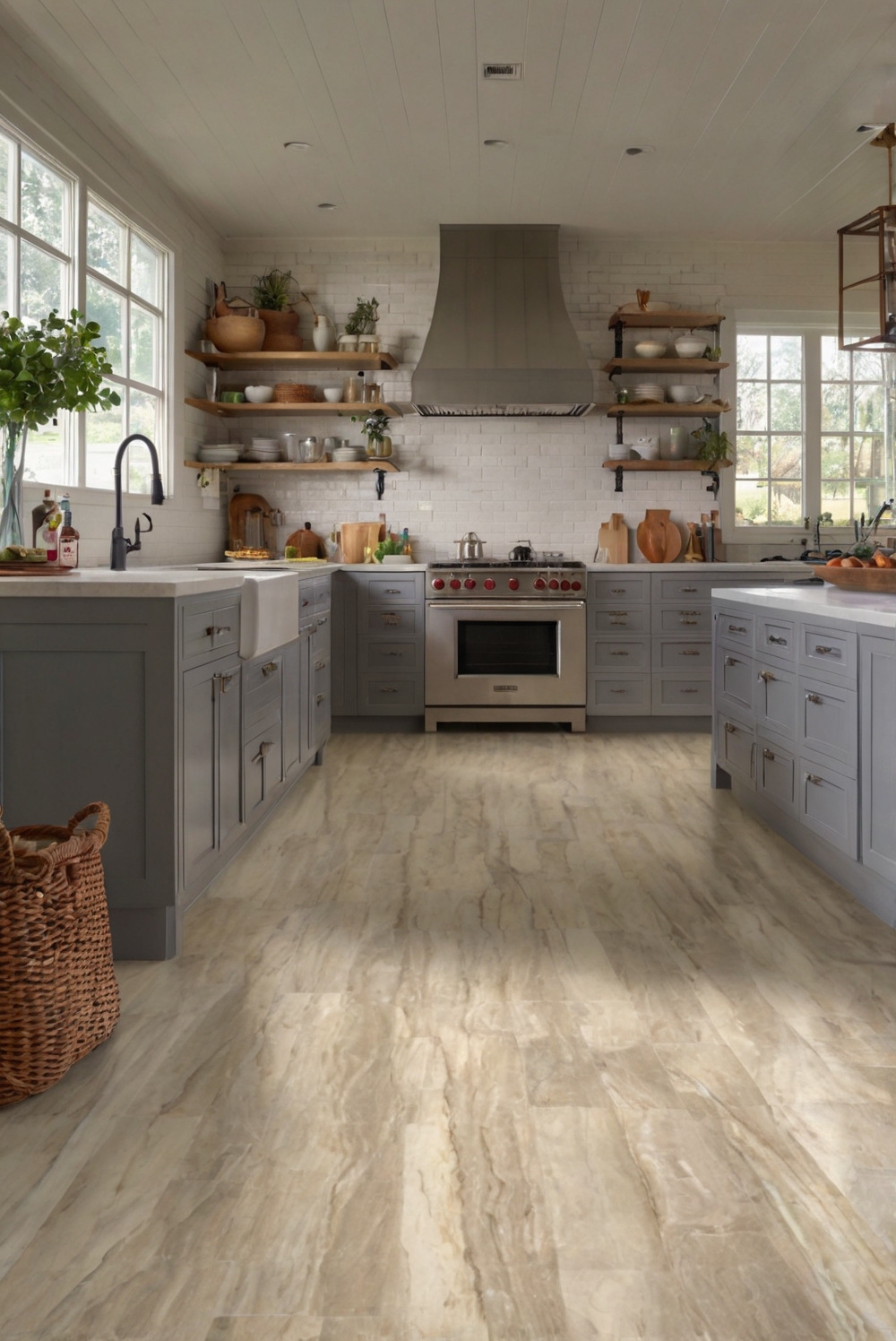Explore the best impact-resistant flooring materials for a durable kitchen floor in this daily routine guide for interior designers. Elevate your space with long-lasting style!
**What flooring materials are impact-resistant for a durable kitchen floor?**
Luxury vinyl tiles (LVT) and laminate flooring are excellent choices for impact-resistant kitchen floors. LVT is water-resistant and durable, making it ideal for kitchen spaces prone to spills and traffic. Laminate flooring, known for its scratch and impact resistance, is also a great option for a durable kitchen floor. To enhance the durability of your kitchen floor, consider adding area rugs in high-traffic areas or under heavy furniture to protect the flooring. Additionally, regular cleaning and maintenance can prolong the lifespan of impact-resistant flooring materials in your kitchen. Explore different color options and patterns to match your home decor and interior design style.
What flooring materials are impact-resistant for a durable kitchen floor?
When choosing the right flooring material for your kitchen, it is essential to consider its impact resistance to ensure durability. Here are some of the most impact-resistant flooring materials suitable for a durable kitchen floor:
1. Porcelain Tile:
Porcelain tile is known for its exceptional durability and resistance to impact. It is a popular choice for kitchen floors due to its ability to withstand heavy foot traffic and resist scratches and dents. Porcelain tile is also moisture-resistant, making it ideal for areas prone to spills and splashes.
2. Luxury Vinyl Plank (LVP):
Luxury vinyl plank flooring is another impact-resistant option for a durable kitchen floor. It is designed to mimic the look of hardwood but offers better resistance to impacts and scratches. LVP is also water-resistant, making it a practical choice for kitchens where spills are common.
3. Engineered Hardwood:
Engineered hardwood flooring combines the beauty of real wood with enhanced durability. It is constructed with multiple layers of wood topped with a hardwood veneer, making it more resistant to impacts than traditional hardwood. Engineered hardwood is also less prone to warping and swelling, making it a reliable choice for kitchen floors.
4. Bamboo Flooring:
Bamboo flooring is a sustainable and durable option for a kitchen floor. It is harder than most hardwoods, making it highly resistant to impacts and scratches. Bamboo flooring is also moisture-resistant, making it suitable for kitchens with high humidity levels.
5. Laminate Flooring:
Laminate flooring is a cost-effective and impact-resistant option for a durable kitchen floor. It consists of multiple layers, including a wear layer that protects against impacts and scratches. Laminate flooring is also easy to maintain and comes in a variety of styles to suit different kitchen designs.
In conclusion, choosing an impact-resistant flooring material is crucial for ensuring a durable kitchen floor that can withstand daily wear and tear. Porcelain tile, luxury vinyl plank, engineered hardwood, bamboo flooring, and laminate flooring are among the top options known for their durability and resistance to impacts. Consider factors such as moisture resistance, ease of maintenance, and overall aesthetic appeal when selecting the right flooring material for your kitchen.

